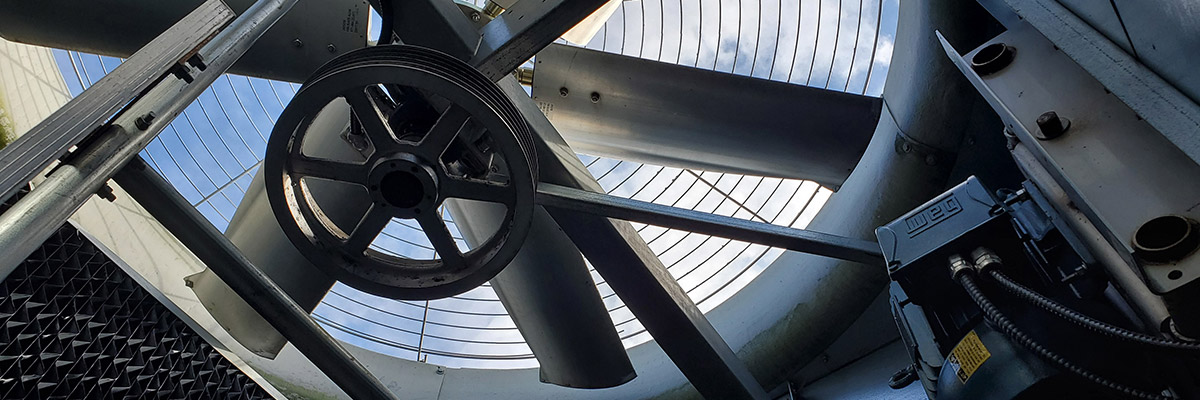Heating and Cooling

We aim to maintain consistent and comfortable temperatures inside all our campus buildings year-round. Fluctuating outdoor temperatures may sometimes impact our ability to meet this service goal.
Seasonal temperature changes: "Shoulder season"
Peak seasons for cooling and heating are summer and winter. In the spring and fall, the daytime highs and nighttime lows in temperature can have wide margins and day-to-day temperatures can swing between “frosty” and “sweltering”. This off-peak period is known as “shoulder season.”
Every spring and fall, our cooling and heating systems work hard to make the switchover to accommodate seasonal temperature changes during shoulder season.
In order to keep offices and classrooms as comfortable as possible, the cooling system is turned on once overnight temperatures are consistently above freezing. The heating system is turned on once overnight temperatures are consistently cool.
It can then take two weeks to a month to fully transition the system to cooling in all buildings, depending on the outdoor temperature extremes. Unseasonable temperature fluctuations during this time may cause you to feel too cool or too warm.
Tips for staying comfortable
There are some measures you can take to help improve your comfort, particularly during seasonal temperature changes. You may want to consider some of these tips:
- Dress in layers
- Keep an extra sweater handy
- Close blinds or curtains
- Keep interior doors open to improve airflow
Heating and cooling requests
Toronto Metropolitan University buildings are set to operate at a temperature of 22 °C (plus or minus 4 °C) during regular operational hours. During off-hours and weekends, some buildings have adjusted heating and cooling temperatures to conserve energy.
If your workspace is abnormally hot or cold and requires attention, you can submit a (google form) temperature and ventilation service request (external link) to let us know. Heating and cooling service requests are processed as follows:
A mechanic checks the temperature control setting for the area, which can often be done remotely.
A physical review of the local system may be required, which may or may not include staff coming directly into your area.
If temperature issues persist beyond 24 hours from the time of your request, please contact the Facilities Help Desk at 416-979-5091 or fixit@torontomu.ca to check in. We can provide an update on any steps we’ve taken to resolve your request, and can update your service request with any new details from your end.
For more information
For more information on our cooling systems, check out this Campus Development news article about the new Kerr Hall chiller for a behind-the-scenes look at some of the impressive infrastructure behind temperature control in campus buildings.

Is something a mess? Is something amiss? Contact Fixit!
We share the responsibility of good campus stewardship with the greater TMU community — your service requests and reports help us continuously maintain a clean, hygienic and good-working environment and infrastructure. If you see something that needs our attention, please contact the Facilities Help Desk. — We can fix it!